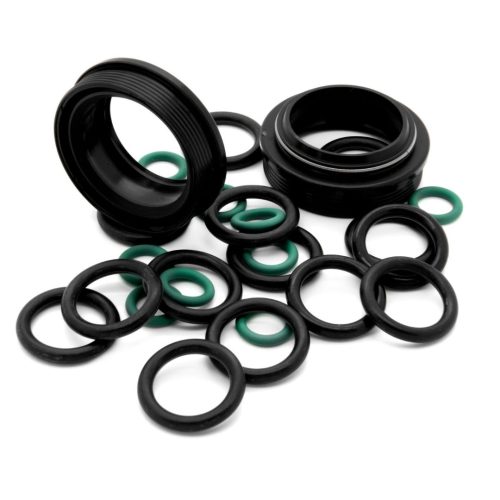Rubber products – resistance, durability, and versatility
Rubber products are an indispensable part of both industrial and household solutions where resistance, elasticity, and long service life are required. Due to its technical properties, rubber is widely used for sealing, insulation, damping, and protection against impact or vibration. These products can be standard shapes or manufactured according to individual designs, taking into account precise technical requirements. Rubber products are supplied throughout Lithuania – in Kaunas, Vilnius, Klaipėda, Šiauliai, Panevėžys, and Alytus, ensuring fast delivery and high product quality.
Rubber products for industrial and domestic use
Rubber products are divided into two main groups: industrial and household. The most commonly used products in industry are rubber profiles, rubber hoses, gaskets, loops, shock absorbers, seals, and various technical components that are resistant to mechanical impact and aggressive environmental conditions. In the household sector, products such as rubber floor coverings, protective mats, sealing strips, and other equipment designed for comfort, safety, or noise reduction are popular.
Properties of rubber: elasticity, abrasion resistance, and chemical resistance
Rubber is highly elastic, making it ideal for adapting to changing shapes and pressure forces. Its resistance to abrasion, temperature fluctuations, and chemicals is also important. These properties ensure that rubber products remain functional even under extreme conditions. This is particularly important in industries where parts must withstand long-term mechanical stress or contact with oils, acids, or solvents.
Where are technical rubber products used?
Technical rubber products are used in the automotive, shipping, construction, food, agriculture, and energy industries. They serve as damping, insulation, sealing, or transmission components.
Properly selected products reduce the risk of failure, extend the service life of equipment, and help ensure the smooth operation of technological processes. Due to its versatility, rubber is suitable for both stationary and moving parts.
Comparison of different types of rubber
To ensure maximum efficiency, it is important to understand the properties and application possibilities of different types of rubber. The type of rubber is selected based on the conditions of use, chemical exposure, temperature range, and mechanical loads.
Natural and synthetic rubber – how do they differ?
Natural rubber is characterized by excellent elasticity, tensile strength, and impact resistance. It is most commonly used in applications where flexibility and resistance to mechanical stress are required. Synthetic rubber, such as EPDM, NBR, or silicone, is highly resistant to heat, UV rays, ozone, and chemical compounds. These properties make it widely used in technical solutions with specific operating requirements.
Resistance to heat, moisture, and chemical compounds
Some types of rubber, such as silicone or Viton rubber, are extremely heat-resistant, even up to +250°C. EPDM rubber is suitable for outdoor use as it retains its properties when exposed to UV rays and moisture. NBR rubber is particularly resistant to lubricants and petroleum products. Choosing the right type of rubber ensures the durability of the product even in aggressive environments.
Custom orders and fast production
UAB Almeida offers both standard and custom-made rubber products, taking into account specific customer requirements. Rubber production is carried out using advanced molding and pressing technologies, ensuring accurate geometry, strength, and durability. Orders are processed quickly and delivered throughout Lithuania – to Kaunas, Vilnius, Klaipėda, Šiauliai, Panevėžys, and Alytus. The price depends on the type of rubber, quantity, product complexity, and delivery terms, but we always strive to ensure the best value for money.
Rubber products are reliable, versatile, and technologically advanced solutions that can be adapted to both standard and individual needs.


